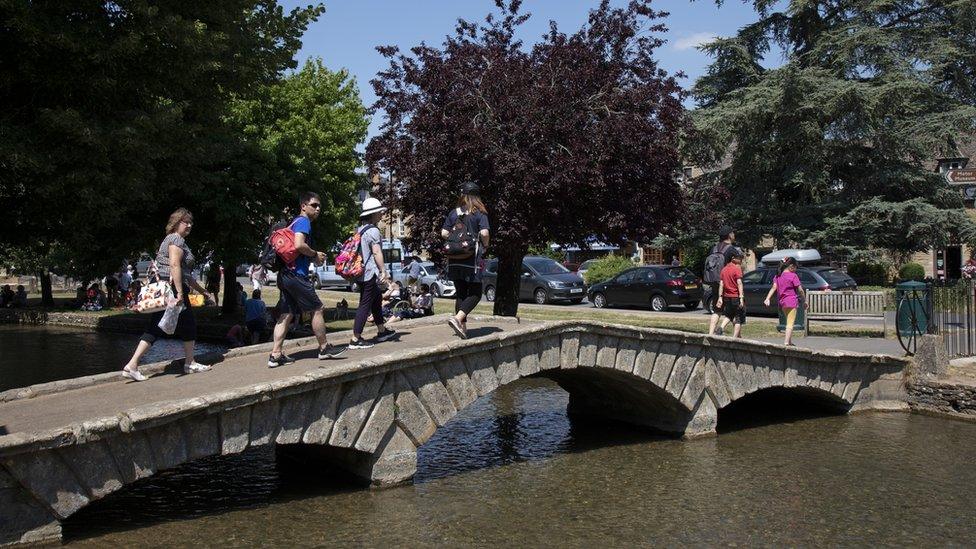Tourism tax: Wales' plan for charge on visitors moves closer
- Published
- comments
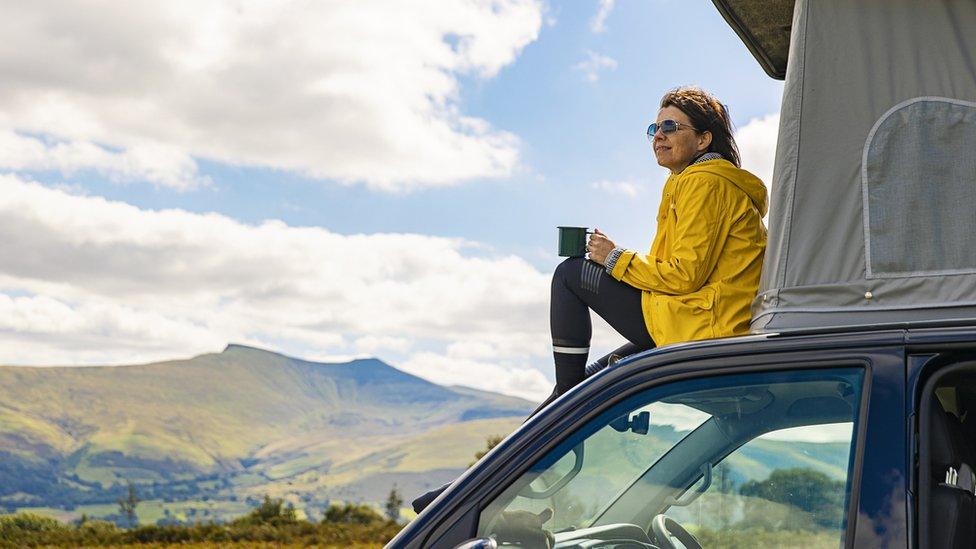
In practice, the tax would only impact overnight visitors to Wales
Plans for a tourism tax on holidaymakers in Wales have moved a step closer.
Legislation allowing local authorities to introduce a levy will be put to the Senedd within the next two years, the Welsh government has said.
It has also published the findings of a public consultation on the topic.
Supporters say the tax would contribute towards maintaining and investing in holiday destinations - opponents say it would put people off visiting Wales.
Similar charges are commonplace around the world, used in more than 40 destinations including Greece, Frankfurt, Amsterdam and Catalonia.
Manchester introduced a tourist tax last year for people making overnight stays in the city, with 74 hotels and guesthouses signing up to the scheme for an extra £1 per night.
"Some local authorities are for it - I don't think we're talking a huge amount of money, it'll be a couple of pounds extra for the accommodation sector," said joint chairwoman of Anglesey Tourism Association Nia Jones.
"The important part is that is spent on the tourism infrastructure and if that happens and people can see the visible and tangible benefits of the tax then we wait to see how it works."
However, Ms Jones accepted there are opponents to the tax, describing it as a "hot potato" in tourism.
"The accommodation sector is still struggling after Covid, I'm hearing that many places are not full for Easter," she told BBC Radio Wales Breakfast.
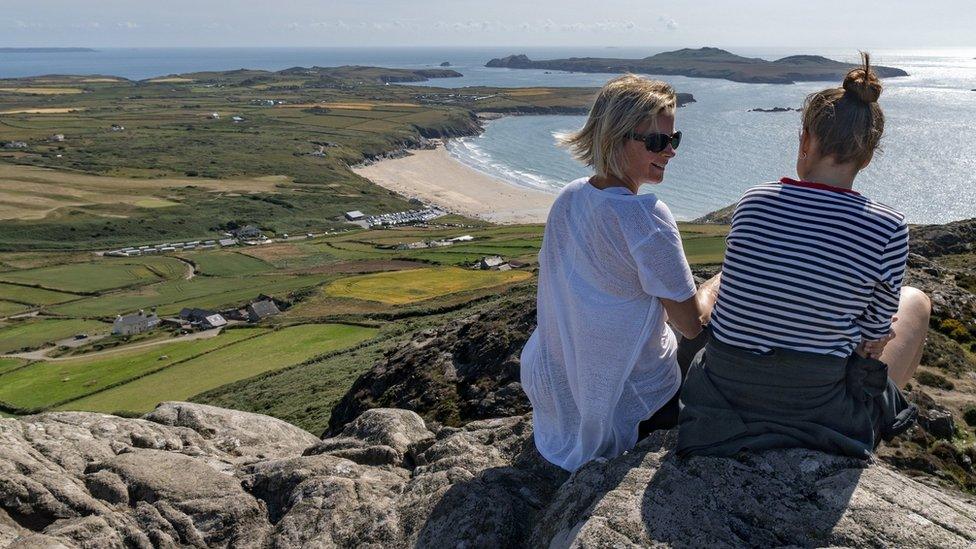
The view over Whitesands Bay, St Davids, Pembrokeshire
"It's particularly quiet, there's still a degree of nervousness in businesses operating at the moment so there will be a split in how the trade will view a tourism tax in Wales.
"We're nervous [about the tax] because it's new, because the industry is still quite volatile after Covid."


Lynette Esposito says the threat is "very real"
What do people in Llandudno make of the plans?
Lynette Esposito, who runs the Elm Tree Hotel, said she was concerned tourists would choose to go elsewhere instead.
"As much as Wales is exceptional and has a unique selling point, the UK isn't short of tourism destinations and tourists are discovering that daily," she said.
"It's a very real threat - they'll just decide that other destinations are more competitive. All these little layers of extra cost - people will think about it."
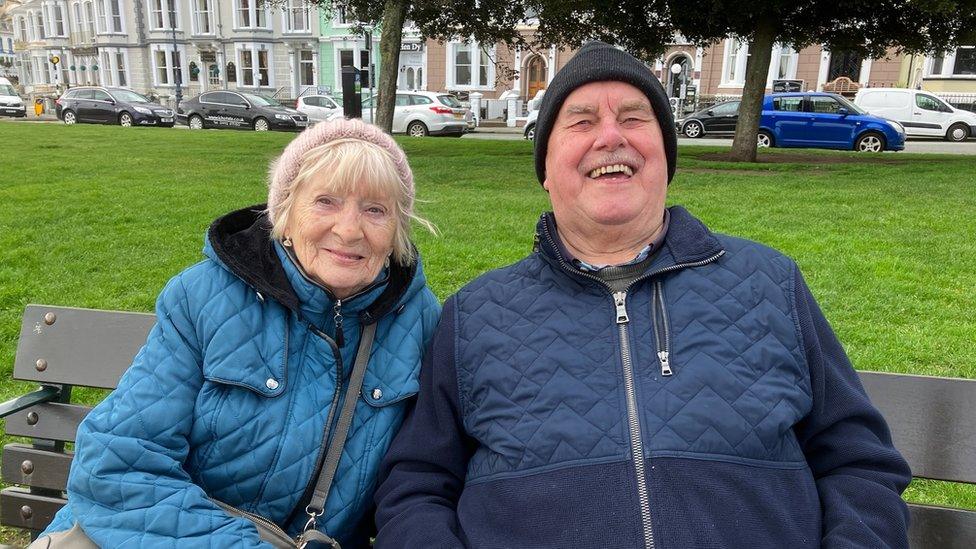
Brian and Barbara said the tax might deter others from coming
But tourists Barbara and Brian Langley from Bradbury, Stockport, said the tax would not deter them from holidaying in Wales, although they acknowledged it could deter others.
"It wouldn't put us off, we're 85 and we keep coming here four times a year," they said.

Hasina and Nisha Mansurali said the tax could encourage people to spend holidays abroad instead
Hasina and Nisha Mansurali from Shropshire said the tax might encourage them to spend their holidays abroad.
"It is quite expensive going on holiday in the UK and maybe it would put me off a bit. So then I'd think: 'Well let's just go abroad rather than spending the extra money'," Nisha said.

Suzy Davies, chairwoman of the Wales Tourism Alliance, said: "To try and introduce another burden for businesses, which is also taking money away from those businesses, is a really crazy thing to do."
Speaking to BBC Radio Wales, Jonathan, a hotel owner from Llanarmon Dyffryn Ceiriog, in Wrexham, said: "It just shows how completely out of touch with reality the Welsh government are. The timing of this alone couldn't have come at a worse time for our industry.
"In two days' time, all our energy support disappears. That means that my electricity bills are going to go from £1,600 a month to £8,000 a month. This is a kick in the teeth for our industry.
"The industry cannot survive this."
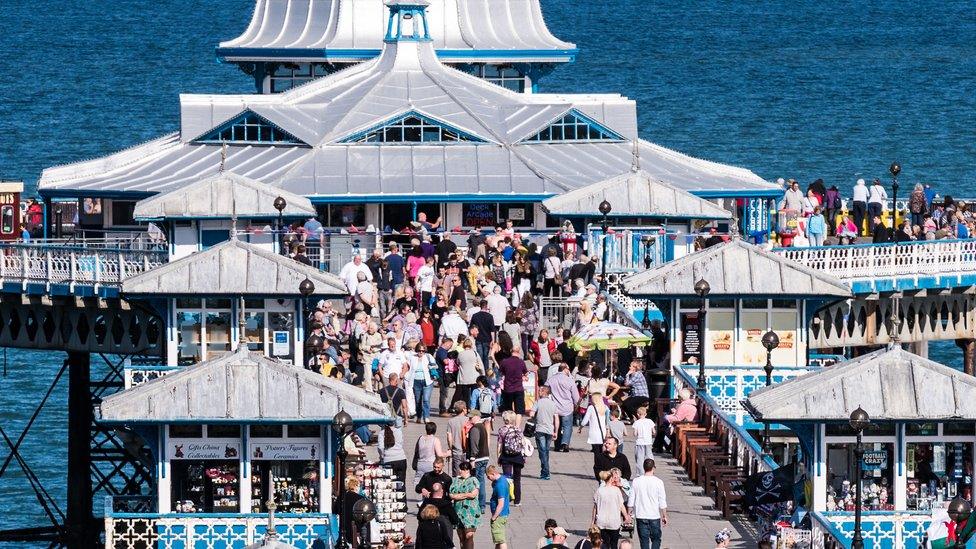
The tourism sector was worth about £5bn in 2019 in Wales, according to the Welsh government
Minister for Finance and Local Government, Rebecca Evans, said: "Tourists across the globe can be sure of a warm Welsh welcome when they come here.
"But, we can't pretend that tourism doesn't have an impact on our communities and this really is just about doing what countries, regions and cities around the world are doing - asking tourists to pay a small contribution."
Ms Evans said the tax amount is currently in development, looking at where other countries have pitched their tourism tax rate.
"We do understand the impact that day visitors have on local communities but I think that in terms of creating a tax that is simple, fair and stable, an overnight levy is much more easy to implement than one which taxes day visitors," she said.
"For example, how you go about identifying day visitors and collecting a levy in a proportionate way?"
Welsh Conservatives Shadow Minister for Tourism Tom Giffard said: "Nothing says welcome to Wales more than Labour announcing they will be pressing ahead with their toxic tourism tax as families gear up for the Easter holidays.
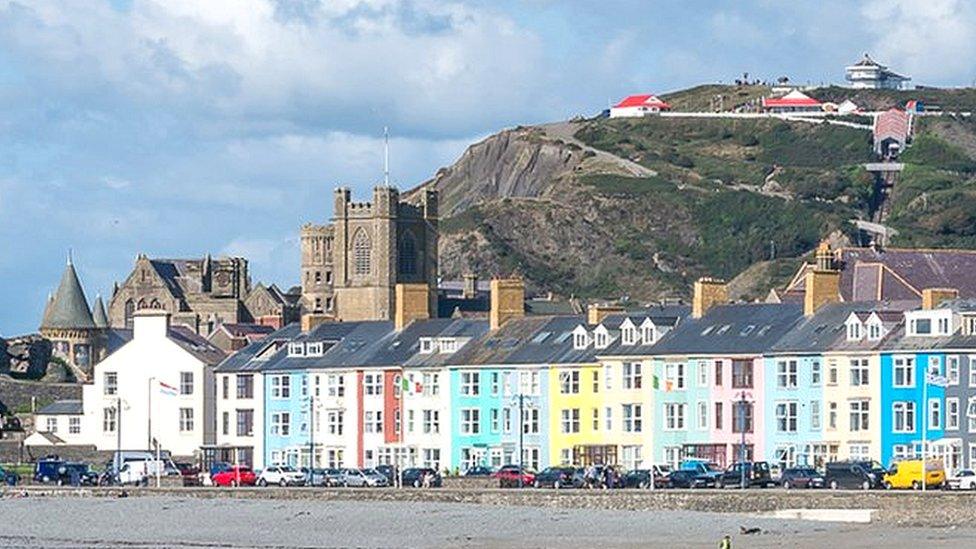
Opponents of the tax said it would put people off visiting places such as Aberystwyth
"Tourism supports one in seven jobs in Wales enabling people to pay council tax, helping to tackle the issues that Labour claim a tourism tax would fix.
"The Labour government should be working with the industry to boost this vital sector instead of taking a sledgehammer to crack a nut."
Visit Pembrokeshire said it was "very disappointed" at the announcement.
"It's disheartening to hear that the strong opposition from the trade across Wales has not been listened to," said Emma Thornton, its chief executive.
The tax would need to be paid by anyone staying overnight in Wales, to contributes to the costs which local authorities face.
The Welsh government has previously said that the levy would be for each council to control.
They would choose whether or not to introduce the charge "according to the needs of their communities".
The Welsh government said it received more than 1,000 responses to the public consultation about how best to implement a tax, which closed last December.
It found support across most local authorities and across other organisations, it added.
However, it also said many responses came from representatives of the tourism industry and many disagreed with the principle of a visitor tax.
Related topics
- Published20 September 2022

- Published20 September 2022

- Published29 August 2022
